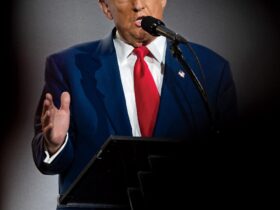
On Monday, Togolese lawmakers embraced a new constitution, transitioning the nation from a presidential system to a parliamentary government.
Under this new framework, the parliament gains the authority to elect the president of the small West African country.
According to the freshly approved text, the president will be selected “without debate” by lawmakers for a single six-year term, rather than through public vote.
READ ALSO: Gumi’s Ally, Mamu Threatens to Sue Attorney-General Over Terrorism Financier List
The precise commencement date of this change, endorsed with 89 votes in favor, one against, and one abstention, remains undisclosed, although it precedes the imminent legislative elections in Togo.
Presently, the president is limited to serving two five-year terms. The constitutional amendment, predominantly advocated by lawmakers aligned with the ruling Union for the Republic (UNIR) party, was almost unanimously embraced.
The national assembly’s composition leans in favor of the ruling party, as the opposition, having contested the legitimacy of the 2018 legislative elections citing “irregularities” in the electoral process, holds limited representation.
Furthermore, the updated constitution introduces the role of “president of the council of ministers” endowed with comprehensive authority over government affairs and answerability.
This position, held for a six-year tenure, is to be occupied by the leader of the prevailing party or coalition following the legislative polls.
Tchitchao Tchalim, chair of the national assembly’s committee on constitutional laws, legislation, and general administration, remarked, “The head of state is practically divested of his powers in favor of the president of the council of ministers, who becomes the person who represents the Togolese Republic abroad, and who effectively leads the country in its day-to-day management.”

This constitutional overhaul heralds Togo’s transition into its fifth republic, with the previous substantial amendment dating back to 1992.
Its enactment precedes the forthcoming legislative elections scheduled for April 20, concurrent with regional elections, where the opposition has announced its participation.
In 2019, a constitutional revision was enacted to restrict presidential terms to two; however, it lacked retrospective application, thus allowing President Faure Gnassingbe the opportunity to contest in the subsequent two elections.








Leave a Reply